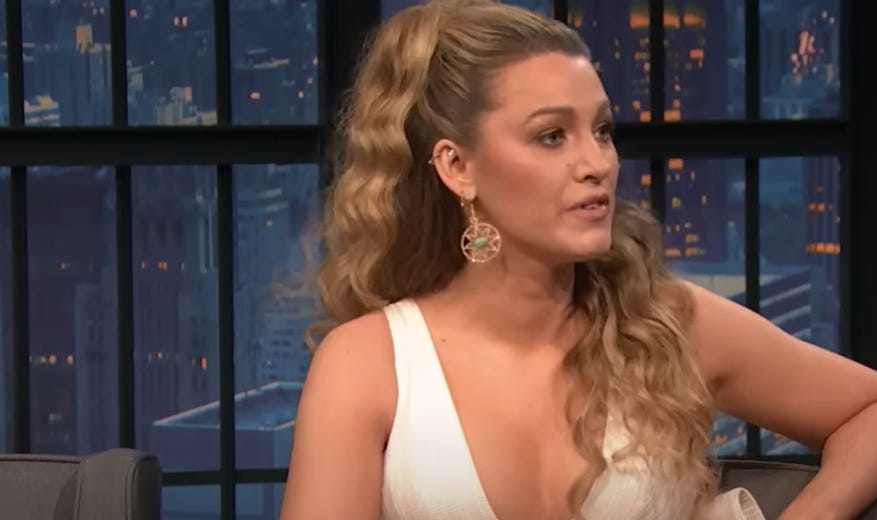Blake Lively Attacks Mostly Female Content Creators with Trump-like Subpoenas
Blake Lively is married to one of the most powerful men in Hollywood, and she's coming for the rights of female content creators with subpoenas for their bank info, contacts, locations and more.
Sarah Jones has been advocating for women’s rights her entire life and writing about sexual harassment, assault, and violence against women for the last 15 years as a published writer.
This is a story about a celebrity feud that could set precedent that would harm all Americans.
Like most celebrities at one point or another, Blake Lively didn’t like how the Internet was talking about her in the summer of 2024.
But unlike most celebrities, she decided the best course of action was to intimidate the Internet into silence with a slew of subpoenas to social media companies TikTok, YouTube (Google), and X (formerly Twitter), demanding banking information, location data, metadata, emails and back up emails, phone information, user’s phone and social network contacts, IP addresses, SIM cards information, and so much more.
Here’s an example of the TikTok subpoena:




